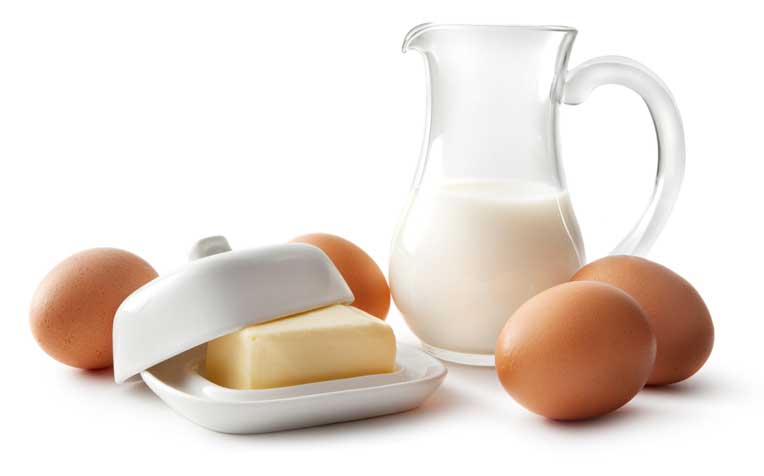HealthXchange will NEVER ask you to transfer money over a call. If in doubt, call the 24/7 ScamShield helpline at 1799, or visit the ScamShield website at www.scamshield.gov.sg.
Eggs and Full-Fat Dairy Foods: Are They Healthy?

Eggs and dairy products are good protein but eating the right amount is important.
Have you ever questioned if your food choices are the healthier options? Our dietitian provides the low-down on some staples like eggs, full-fat dairy foods, butter and salads.
Dear Health Xchange,
I am a 17 year-old-student and have recently embarked on eating healthy and exercising regularly. However, I have some questions about food choices, and information that I have gathered from websites differ somewhat. I hope you’ll be able to help me with them.
Thank you!
Ina
Replies from a dietitian from the Nutrition and Dietetics Department at KK Women’s and Children’s Hospital (KKH), a member of the SingHealth group.
Dear Ina,
It is good that you have embarked on a regime of eating more fruits and vegetables, and exercising regularly. It is also commendable that you are reading up more about healthy living. I hope the answers to your questions below will give you a clearer idea on how to make the right food choices and stay on the healthy path.
Q: Are egg yolks high in cholesterol and hence, bad for our health? What is the recommended serving of eggs per week for a teenager?
A: Yes, egg yolks are high in cholesterol, but this is not necessarily bad for our health. Recent studies suggest that regular egg consumption (up to seven eggs a week) in the general population does not increase the risk of heart disease. However, consuming a wide variety of foods is the best way to obtain all the nutrients you need for optimal health, hence the Health Promotion Board recommends consuming up to four eggs per week.
Q: What is the stand on low-fat vs full-fat dairy products? Is it true that full-fat foods are needed to assist in absorption of other nutrients from the other foods I eat?
A: It is recommended that children from as young as two years onwards may select low-fat or non-fat dairy products as part of their diet. It is true that fat is needed to assist with the absorption of fat-soluble vitamins, namely vitamin A, D, E and K. However, the fats need not necessarily have to come from full-fat dairy products. Much of the fat in full-fat dairy products is saturated fat, which is associated with increasing one’s bad cholesterol. So choose fats from polyunsaturated or monounsaturated sources instead.
Note: Sources of polyunsaturated fats include deep sea fatty fishes (e.g. tuna, sardines, mackerel, herring and salmon), legumes (soybeans), seeds (flaxseed), nuts (walnuts) and their oils. Sources of monounsaturated fats include most nuts, olive oil, canola oil and avocado.
Read on for FAQs on butter, salads, and more.
Ref. O17
Contributed by
Related Articles
Public Events
© 2025 SingHealth Group. All Rights Reserved.
















